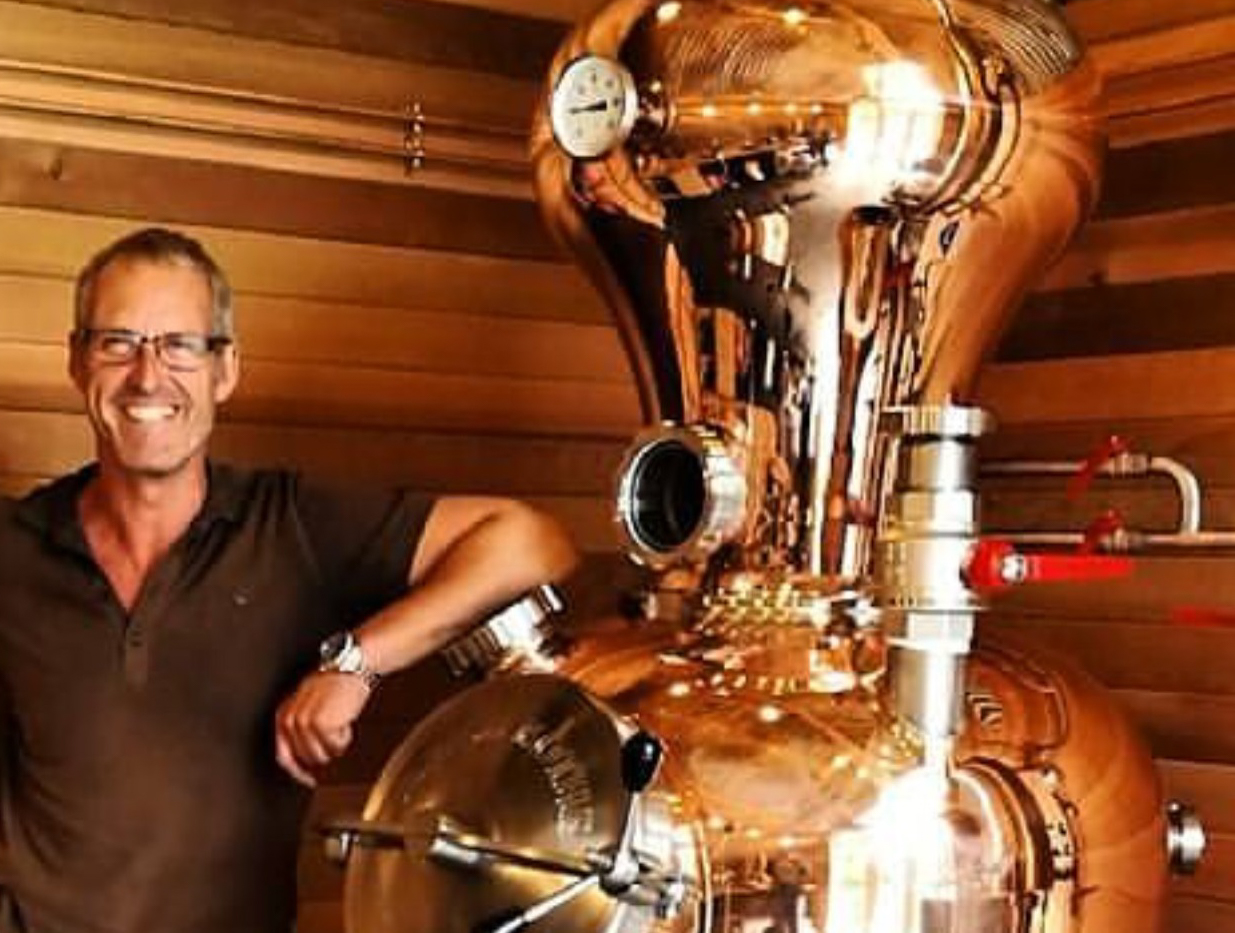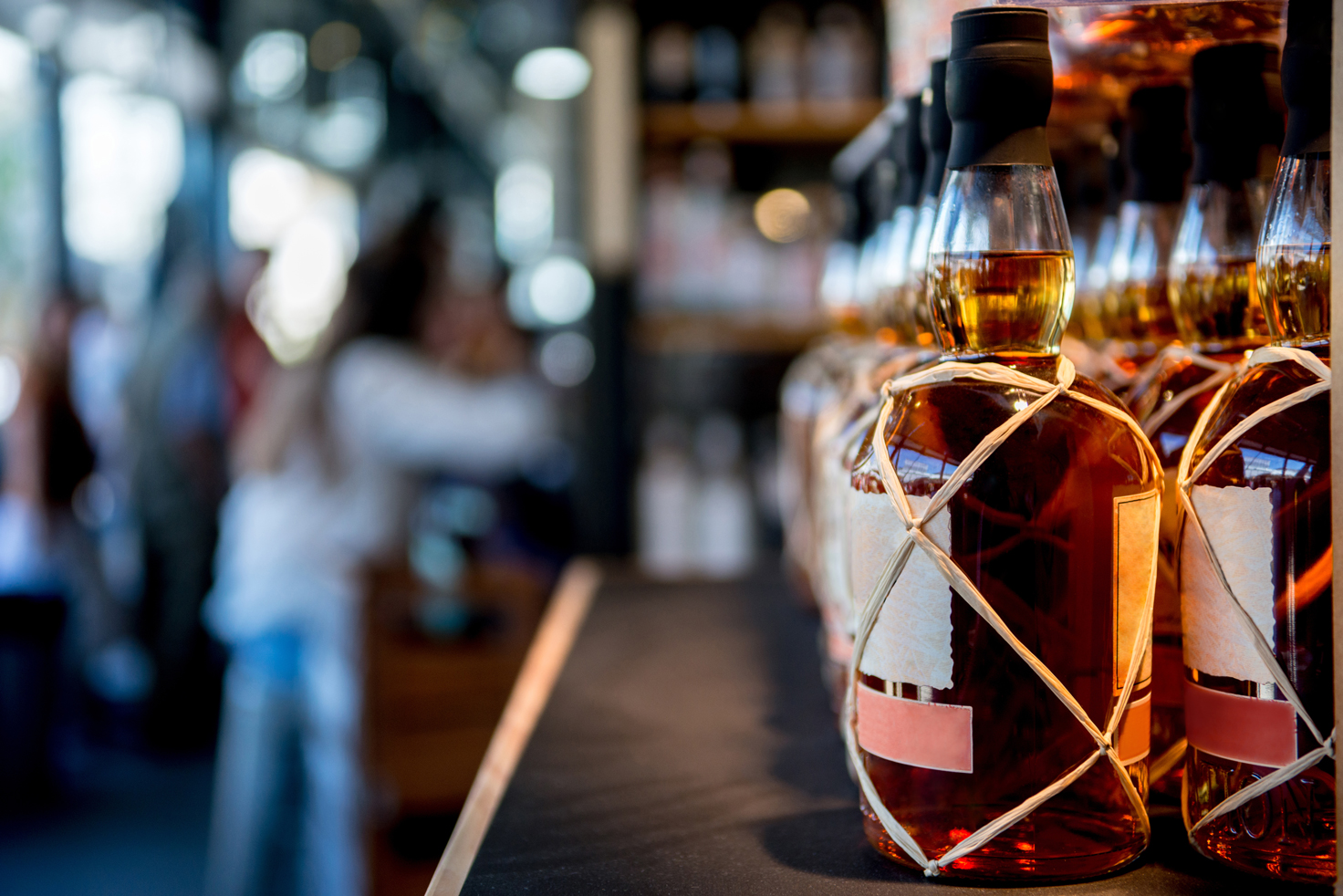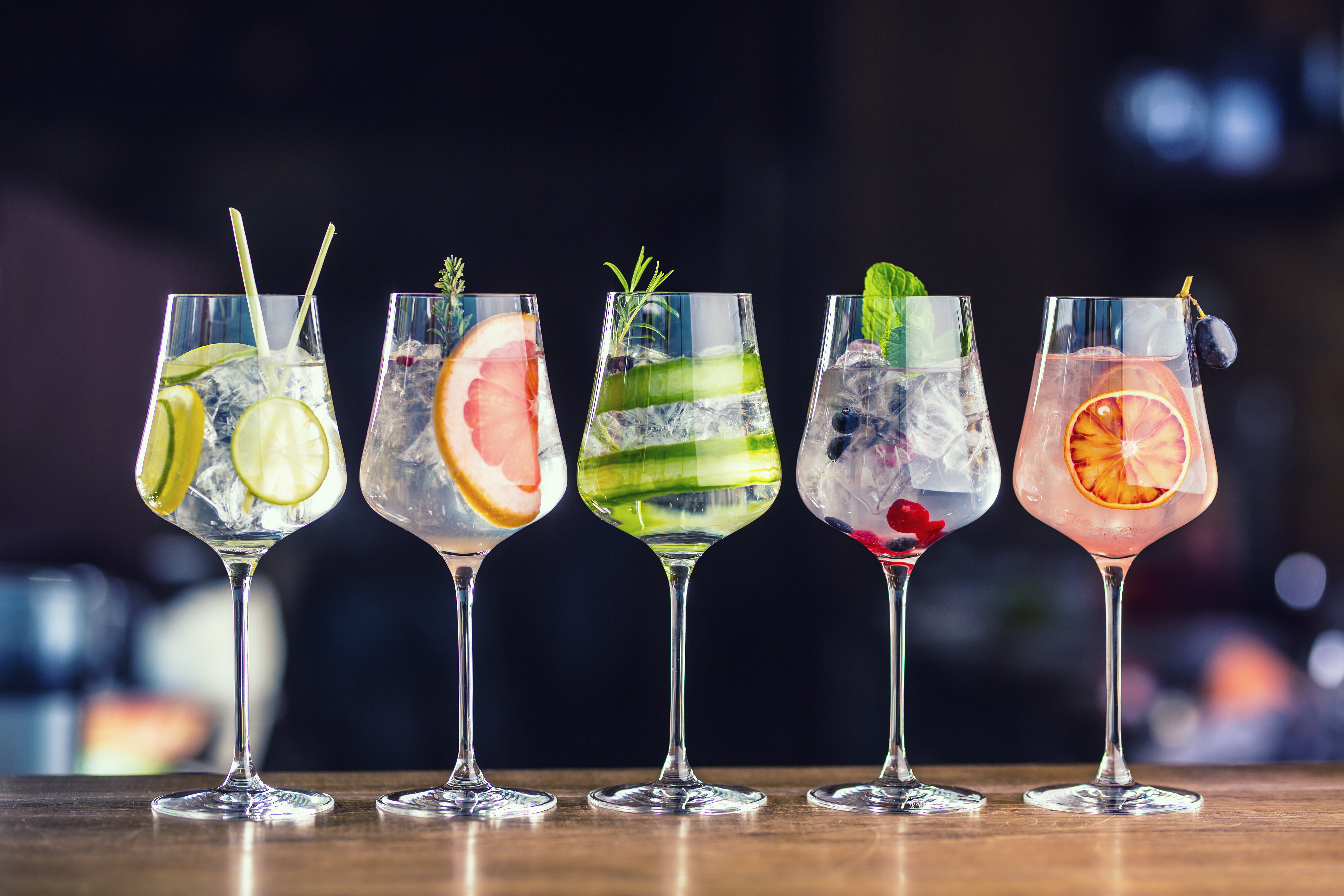ENQUIRE NOW
ENQUIRE NOW
NEW EQUIPMENT
Home | You searched for “no alcohol” | Page 4
The story of Jarrolds Gin
From oil to gin
A career as a drilling contractor in Iraq with no experience in the drinks industry may not seem the obvious starting point for a spirits distiller. However, for Jamie Jarrold of Jarrolds Gin this has proved a useful background and led to award-wining gins, made at his house in Chichester, West Sussex. “I started as an 18-year old in the drilling industry and worked my way up as a drilling contractor”, he explains. “As I was so used to machinery, industrial mixing systems and processes, operating a still didn’t faze me!”
Beginnings of Jarrolds Gin
After many years of trying different gins in the UK, Jamie and his wife Nichola decided in February 2016 to make a gin that was more flavourful and robust than most of the ones they had sampled. “We looked at the gin in the glass and thought ‘we just can’t taste it'”, he recalls. Having encountered sun-dried Persian limes in food and drink in Iraq, this was the key botanical they decided to use for their London Dry as it adds “an unusual and slightly smoky citrus quality”.
Searching for a still
The couple then searched for a supplier of stills, but this proved far from easy. “We’ve never encountered a more difficult process getting in contact with manufacturers”, Jamie explains. While experiencing a lack of response, they found Ryebeck’s details and, following an initial conversation, Managing Director Tim Prime organised a meeting with Kothe Distilling at the company’s Stuttgart plant in late August 2016.
“It was very difficult to get in contact with manufacturers, so having Tim involved made it so much easier than doing it on my own.“
Ryebeck’s help secures the deal
Jamie describes the importance of Tim’s help: “Still manufacturers are busy and having Tim there to be able to introduce me to the Kothe team and to suggest spending a full day with them was great and smoothed the way. This sold me on the company and also gave me the chance to talk to them about distilling. Kothe gave us good pointers for doing things the best way, including reducing the alcohol content of the spirit down to precisely 29.5% prior to distillation and Ryebeck definitely facilitated that process brilliantly. I had no experience of distilling and having the opportunity to ask questions and talk everything through was crucial. I could have been sold anything at that point, so to have a sensible conversation then was so useful.”
Jamie discussed his machinery requirements in detail with Ryebeck and Kothe. He already knew that he wanted a single-shot traditional pot still, but the advice he received in Germany proved invaluable. This included recommendations on futureproofing the still, how to optimise the quality of the spirit produced plus hints and tips on the installation process itself. He also values the opportunity he had to witness the workmanship involved in constructing the Kothe stills. “It was great to see what you’re buying, especially the quality of craftsmanship.”
“We are very self-taught, but realise that if you don’t know something, speak to someone who does!“
Choosing a Kothe still
For a business venture, the 10L still Jamie and Nichola used in their kitchen to create the unique recipe for their London Dry was clearly not commercially viable. Therefore, with Ryebeck’s guidance, they decided on a Kothe K800 250L pot still which met their “low-key, small scale and price objectives.” Destined to produce no more than 8000 bottles of gin in total this year, Jamie particularly appreciates the fact that Ryebeck remained fully committed to and supportive of the project regardless of its size. “Even though this is the smallest commercially available still, Ryebeck always provided the level of attention and concern required.”
Award-winning gin
Having paid a deposit in November 2016, the still was delivered in June the following year. After some delays finalising bottle designs, the first gins were released for sale on March 16th 2018. In addition to the London Dry, for which they won an IWSC Silver, they produce a Limited Edition Sloe Gin, an IWSC bronze medal-awarded All Year Round Sloe Gin and are soon to release a Rhubarb Gin.
At 48% ABV and juniper-forward with an unusual smoky citrus quality and spicy character from the botanicals, their London Dry is certainly distinctive with real depth of flavour. “It takes people by surprise largely by strength and because it’s incredibly smooth”, says Jamie. “Even people who don’t drink neat gin regularly love its smoothness and the IWSC Silver backs that up! It’s great for traditional cocktails too, like a Negroni.”
Honesty of the product
Jamie also sees integrity and honesty as defining features of his gin production. “We’re very transparent about what we do. We don’t claim all our ingredients are local, but our gin is made locally. We distil, bottle, label and pack it. Flavours and taste aside, the integrity of the process and fact that we’re doing it ourselves is very important to us. We did much of the work on building the distillery, such as steel erecting and foundation digging. We put a great deal of personal effort into this endeavour and never considered doing it any other way.”
Benefits of the Kothe still
For Jamie, the Kothe K800 offers the functionality he requires to create the gins he wants. It’s straightforward to operate and, as he explains, helps ensure consistency in the final product. “The challenge for a craft distiller is that each run should be the same as before. With this still, it’s easy and we get a consistent product throughout. It’s all down to the electronics with the ability to control the electrical heating elements individually. Also, the thermostatic element in the vapour pipe is linked to a digital display that’s incredibly accurate, showing the exact temperature without us having to rely on analogue gauges. It’s a fantastic looking piece of kit too!”
Future for Jarrolds
Jamie is looking at expanding his business locally and Ryebeck remains fully within his plans. “What we’re doing is not just a hobby. It has to be a bona fide, profit-making business and expansion will allow us to increase the volume we make and give us the opportunity to produce different gins too. We would definitely use Ryebeck again. It’s good to have that relationship already there and I’ve stayed in contact with them since we’ve been open. Even though they are clearly very busy, they are always available to speak to when needed and I can bounce ideas off them.”
Advice for others
Jamie recommends Ryebeck for anyone looking at opening a distillery. “Although it’s good to know as much as possible beforehand what your design requirements are, if you don’t, they’re on hand to steer you completely through that process. It’s been a very good experience and I would thoroughly recommend them.”
If you’re a large or small business looking at producing high quality gin, then Ryebeck can provide you with one of our top German-made distilleries. Please get in touch via our Contact Page and one of our team will be happy to set up an initial meeting.
Whisky trends – the shape of things to come
With whisky enjoying a boost in popularity globally, thanks in part to a new generation of innovative distillers, what will be the key trends for the coming year? This was the focus of Alice Lascelles ‘ masterclass and tasting at the inaugural Think Whisky event, organised by Agile Media, Drinks Retailing News and Harpers. The six contrasting whiskies she chose each represented a taste of the future.
-
Whisky and Soda Highball
Whisky used: Yamazakura (blended whisky from Japan)
Trend description: This is a low sugar and lower alcohol, sessionable way of using whisky. Versatile with food and particularly refreshing in summer, it also taps into the trend for grain whiskies, many of which are designed to go with soda. As a cocktail, the highball is another way to add more theatre and variety to the category.
-
New World Whiskies
Whisky used: Starward ‘Solera Single Malt’ (Melbourne, Australia)
Trend description: this whisky is made from 100% Australian barley and aged solely in Australian fortified wine casks. It’s indicative of how these new nations can break down traditional categories, producing whiskies with stylish labels, non-age statements and using language that speaks to modern consumers less bothered by traditional descriptors.
-
Age of Information
Whisky used: Compass Box ‘The Story of the Spaniard’ blended Highland malt (Scotland)
Trend description: consumers are seeking more background data and stories about what they’re paying for with details on how their drinks are made. They want to feel a sense of trust with the brand they’re buying into, rather than relying on “big corporate, faceless brands”. Compass Box has been instrumental in this trend for transparency and sharing of information, as well as providing great packaging for their whiskies.
-
The Rise of Rye
Whisky used: FEW Spirits Rye (Illinois)
Trend description: modern interpretations of old-style rye whiskies are growing in popularity, fuelled by increased interest in heritage brands and cocktails. This one from FEW uses a wine yeast that gives a fruitier profile, along with the characteristic peppery, rye flavours. US whiskey styles are growing in the UK, led by Bourbon, but new, interesting ryes are coming on the market now, including some from European countries such as Britain and Holland.
-
Cultural Terroir
Whisky used: Mackmyra Svensk Rök (Sweden)
Trend description: made with 100% Swedish malt, smoked with Swedish peat and juniper and aged partially in Swedish oak, this is a whisky with a ‘sense of place’. Representing a growing trend for more experimental whiskies shaped by regional traditions, including home-grown ingredients and influences from local cuisine, this showcases terroir as a cultural rather than geographical concept.
-
Independent Bottlers
Whisky used: That Boutique-y Whisky Company Loch Lomond 21-year old single grain (Scotland)
Trend description: Independent bottling companies now make exciting and intriguing specialist whiskies, often with cool, eye-catching labels. This trend taps into a thirst within the new wave of luxury drinks retailing for limited edition, small-batch whiskies, unavailable online. These ‘thrill-of-the-chase’ products can only be bought in certain stores which gives them a real cachet.
Ryebeck Ltd can help you supply the future best selling whisky on one of our quality German made distilleries. You can read more about our customers that already have here.
The UK ‘Gin-naissance …
The UK ‘gin-naissance’ continues to fly the drinks flag for Brand Britain, but what does the future hold?
British gin sales are booming. Hardly a month seems to go by without a new gin appearing on the market, a distillery opening, another gin feted in the press or a medal won by a UK distillery in a prestigious competition. Indeed, the growth in overall alcohol sales, as reported by the Wine and Spirit Trade Association (WSTA) in their Market Report for January to March 2018, has been largely attributable to gin, which is also one of the key categories boosting price increases and premiumisation in the sector.
Domestic gin sales are up 28% in volume but a staggering 33% in value!
According to the WSTA, domestic gin sales recorded in the 12 months to the end of March 2018 reached almost 55 million bottles, up 28% in volume and 33% in value on the same period the previous year. The gin industry is already worth nearly £2 billion to the UK economy and is forecasted to grow by 37.2% over the next three years. However, it’s not just domestic sales that have risen. British gin is also in demand overseas with exports rising by 19% in value in the first six months of 2018, according to HMRC figures obtained by the WSTA and are predicted to increase further, reaching £600 million in value sales by the end of the year.
The number of distilleries in Britain, which now numbers 315, has more than doubled in the past five years, with 42 new UK spirit makers starting up last year alone. None of this would be possible without specialist equipment and Ryebeck Ltd., a company with a growing list of customers across the UK and worldwide, was responsible for 20% of all distillery installations in the UK during 2017. Supplying high quality stills and providing expert advice throughout the installation process, Ryebeck is a leading player in the resurgence of the UK gin industry, enabling businesses of all sizes to produce the volumes and style of gin they require.
Despite continuing growth in the sector, Mintel analysts nevertheless predict a slower rate in the period up to 2022 as the fashion for gin plateaus. Chief driving factors for this expected slowdown are the declining numbers of under-35s, the age group showing the highest consumption of white spirits and a general consumer tendency, especially among the rising number of over-55s, to restrict alcohol intake. Additionally, although the popularity of British-made gin has shielded the category from some of the consequences of exchange-rate led inflation, wider cost pressures are still expected to have an effect. However, continued investment by companies through NPD and marketing should help to stimulate future sales.
Brexit remains the proverbial elephant in the room as uncertainty looms over its potential impact. With juniper and many other commonly used botanicals such as orange and lemon peel imported from Mediterranean countries, there are concerns that the British gin industry could suffer if ports collapse and goods can’t get through. This would hit hard some of the UK’s smaller craft gin distillers who may not have the capacity nor purchasing power to stockpile goods, according to the WSTA’s findings.
Clearly, there are grounds for both optimism and a degree of apprehension over how long Britain’s so-called gin-naissance will continue to drive spirit sales, but the trend for premiumisation in the alcohol sector is certainly a positive sign for the gin industry’s future. Therefore, businesses wishing to piggyback off the interest and willingness of consumers to engage with premium spirits will benefit from sourcing top quality distillation equipment and Ryebeck’s expert team is ready to work with them to identify the best equipment for their particular business needs.
Ryebeck Ltd can help you supply your future gin still on one of our quality German made distilleries. You can read more about our customers that already have .




